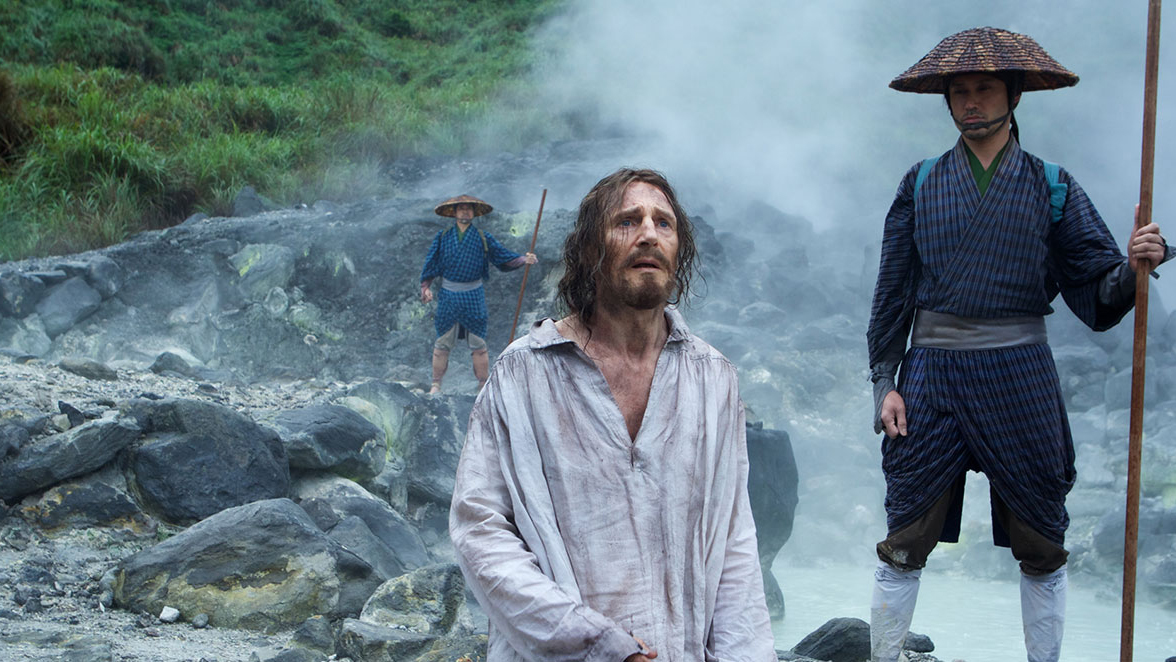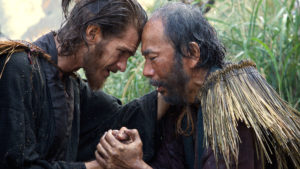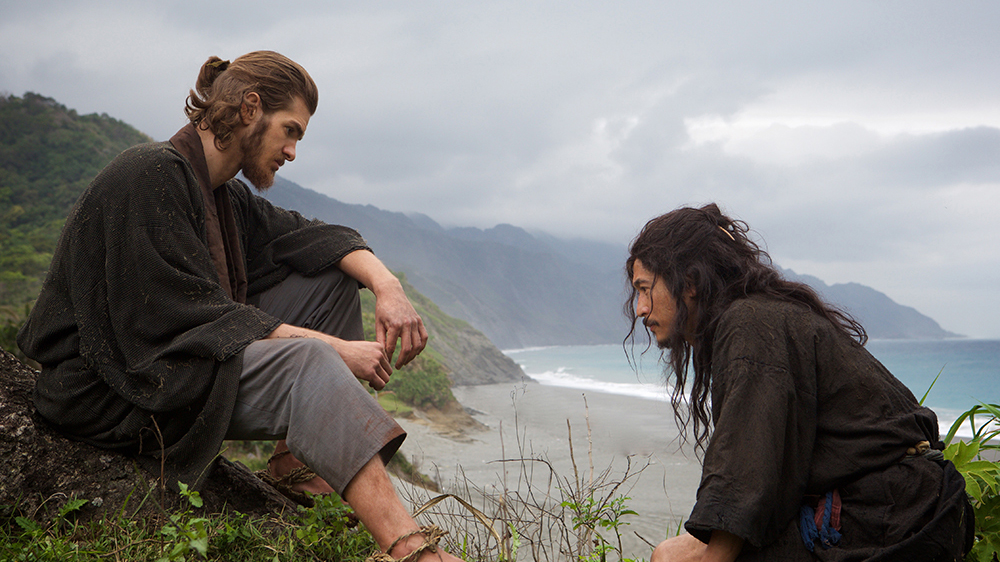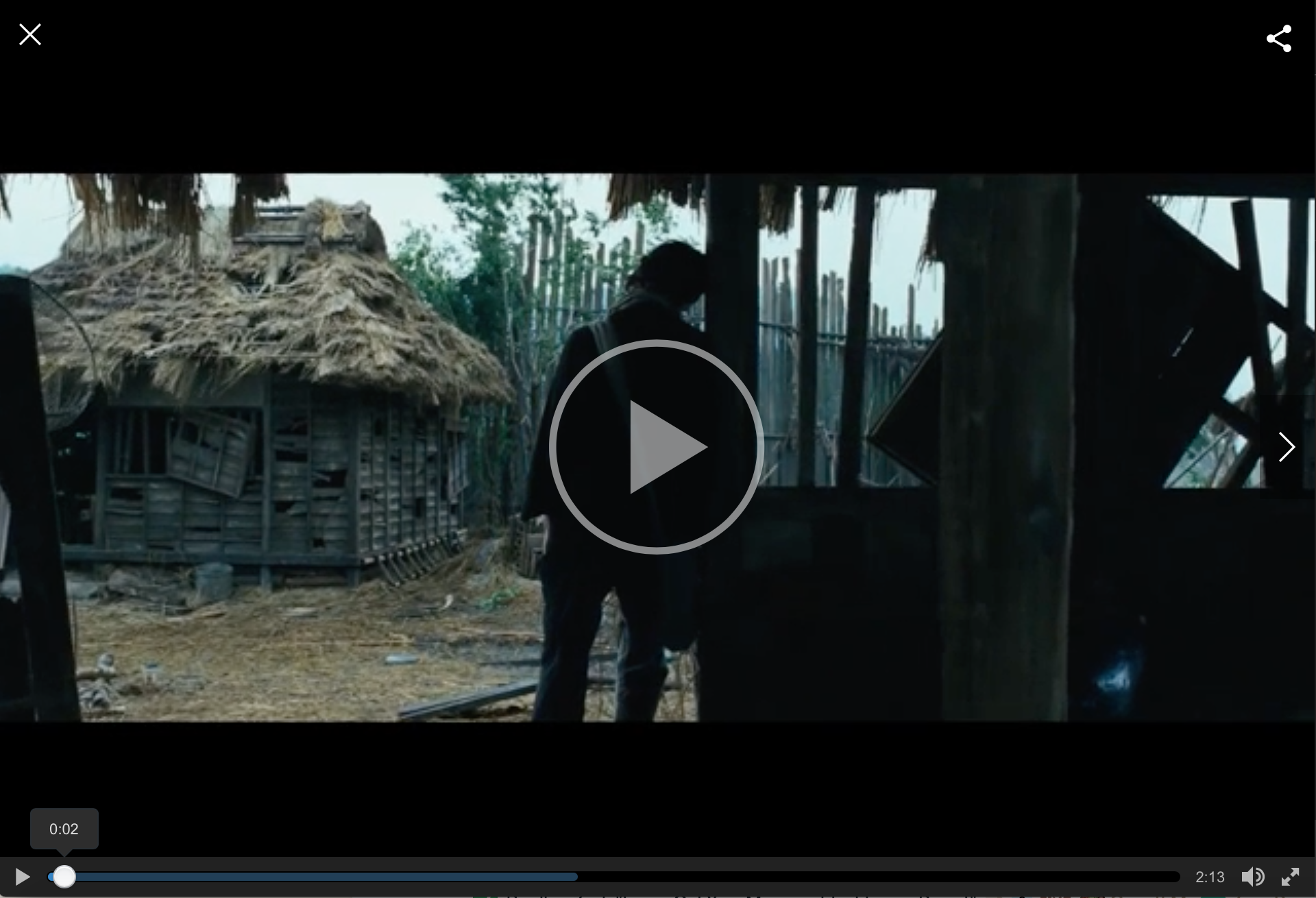
Editor’s Note: Preparing followers of Jesus to face persecution is an aspect of discipleship. In a time when many countries actively suppress the expression of Christian faith, mission in the context of opposition is a pressing issue for us to consider. Martin Scorsese’s recent film, Silence, dramatizes the severe persecution of Catholic Christians in seventeenth-century Japan. Earlier we talked with executive producer Tyler Zacharia about the difficult questions raised by the film and their implications for Christians today. Now that the movie is available for streaming, DVD, and Blu-ray, we hope it will prompt fruitful conversation about mission in closed countries, appropriate contextualization, and faithfulness in the face of suffering.
Martin Scorsese’s recent film Silence, adapted from the novel by Shusaku Endo, prompts deep questions about faith, mission, and suffering. Set in the seventeenth-century, the movie tells the story of two Portuguese Jesuit priests who travel to Japan in search of their mentor, Father Ferreira. It is rumored that Ferreira has apostatized—renounced his faith under torture—during the terrible persecution instigated by Japanese officials seeking to eradicate Christianity from the country.

Silence, Suffering, and Mission
The film is a must-see for any person involved in international missions, whether as a goer, sender, or mobilizer. The film has recently been released on DVD and on streaming sites like iTunes and Amazon. So this is a great time to gather with others to discuss the critical questions raised by the movie.
Difficult questions about suffering, persecution, and mission are worth wrestling through with others as we seek to obey the Lord’s instruction to make disciples of all nations (Matt. 28:16–20). This post is designed to equip you with questions and Scripture references to help guide discussion as you process the film with others. If you’re planning to lead a discussion on Silence, make sure you’ve viewed it beforehand. In order for the conversation to be fruitful, everyone in the group will need to have seen the film.
If you’re looking for a review of the film and an evaluation of the themes it presents, you can see these insightful articles from the Ethics and Religious Liberty Commission, Christianity Today, Think Theology, and The Gospel Coalition.
From this point on, I’m assuming that you have read the book or seen the film. Spoiler alert: the questions and discussion points below reveal plot details.
Facilitating a Conversation about Silence: Discussion Questions
Why do Christians feel compelled to share the gospel in closed countries?
The film takes place in a time when Japan was closed to outside religions, especially Christianity. The government actively persecuted those who practiced the Christian faith. Why did Catholic priests like Ferreira, Rodrigues, and Garupe feel the need to go and secretly share their faith in violation of the laws of Japan? Does the Great Commission apply to countries closed to the gospel?
Relevant Scriptures:
- Matt. 28:16–20
- Rev. 7:9–10
- Rom. 15:18–21
- Rom. 10:9–15
Is it right to risk danger to share the gospel?
When Rodrigues and Garupe travel into Japan in search of Ferreira, they know it is probable they will be discovered and tortured or killed. They struggle knowing that their presence in the country causes danger for local Christians. When they encounter a group of hidden Catholics and begin ministering to them, they increase the likelihood of their discovery. Is it foolish to minister in a location where the penalty for Christian faith could be death? How should missionaries assess the risk before they are sent to a country where there is intense persecution? Who should be involved in the decision about whether it is wise for them to go?
Relevant Scriptures:
- Phil. 3:8–11
- Acts 14:19–23
- Matt. 24:9–14
- Rev. 6:9–11
- Matt. 10:26–28
How should Christians experiencing suffering respond when God seems to be silent?
The title of the novel and film—Silence—reflects Rodrigues’s experience of witnessing the great suffering of Japanese Christians and feeling like God was silent. Was God actually silent? Did he ever answer Rodrigues’s prayers of asking why these men and women had to suffer? How can Christians reconcile the seeming silence of God in the face of great suffering?
Relevant Scriptures:
- Isa. 55:8–9
- Ps. 22
- Matt. 27:45–46
- Heb. 4:14–16; Matt. 5:3–12
- Matt. 26:38–39
Is there a limit to how much forgiveness can be given?
One of the main characters, Kichijiro, is a man who denies God and betrays the priests several times, only to come back and beg for forgiveness repeatedly. Rodrigues compares Kichijiro to Judas, wondering if Jesus could love a “wretch” like this. Is there a point where a person’s betrayal of the faith cannot be forgiven?
Relevant Scriptures:
- Matt. 18:21–31
- 1 John 1:8–10
- Matt. 5:38–48
- Luke 23:34
- Col. 3:12–13

Andrew Garfield as Rodrigues and Yosuke Kubozuka as Kichijiro in a scene from Martin Scorsese’s Silence, by Paramount Pictures.
How far is too far when it comes to contextualizing the gospel within a culture?
In one scene the Japanese inquisitor asserts that Christianity cannot take root in the “soil” of Japan, because the culture is too different from the cultures where Christianity thrives. Later, the priest Ferreira, who has renounced his faith, shares his conviction that Japanese Catholic Christians do not have true, saving faith. He suggests they have applied Christian terminology to beliefs they already held. For instance, rather than worshiping Jesus, the Son of God, they worship the sun god under a different name. At what point does the gospel become unrecognizable? How can we tell if those we are witnessing to have true, saving faith?
Missionaries often look for connection points between the local culture and the gospel story. Contextualizing the gospel within different cultures is an essential part of helping people understand the message within their own cultural context, but how far is too far? Are there any cultures in which the gospel cannot take root?
Relevant Scriptures:
- Acts 17:16–34
- 1 Cor. 9:19–23
- Rev. 22:18–19
- John 13:34–35
- 1 John 2:1–6
Is it right to publicly deny faith in Christ to save the lives of others?
The major question the priests wrestle with is whether they should publicly deny Christ to save the lives of others. They went to Japan prepared to die for their faith, but they weren’t prepared to watch others suffer and die in their place. The Japanese inquisitors developed a strategy of torturing Japanese Christians until the priests apostatize. Is it right for the priests to publicly renounce the faith so others can be saved from the agony of torture and death? This is one of the most complicated issues raised by the film and the book. Is it more important to stop the suffering of others or to maintain a public Christian witness?
Relevant Scriptures:
- Matt. 12:22–37
- Matt. 10:32–33
- 1 John 1:9
- Luke 15:3–7
- John 6:35–40
I pray that God gives you wisdom and insight through his Word and through your discussion with others about these important questions. And may he give you a greater passion to see the gospel carried to the ends of the earth.
Silence, directed by Martin Scorsese and written by Jay Cocks, stars Andrew Garfield, Adam Driver, and Liam Neeson.


